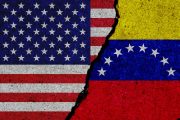
U.S. Supreme Court Justice Samuel Alito has issued a temporary green light for the Biden administration’s “ghost gun” regulations. This move comes in response to the federal government’s argument that lower courts had essentially overridden a prior Supreme Court decision.
In an order dated October 6, Justice Alito granted the administration’s request for the enforcement of these regulations. This administrative stay will remain in effect until October 16.
A “ghost gun” is a term commonly used to refer to a firearm that is typically homemade or privately assembled and does not have a serial number or any other form of identifying markings. These firearms are typically manufactured by individuals using commercially available parts or kits, often purchased online.
Here’s the procedural backstory as published by the American Bar Association’s ABAJournal:
The Supreme Court had revived the regulations in August, when it stayed pending appeal a decision to vacate the regulations by U.S. District Judge Reed O’Connor of the Northern District of Texas.
Two manufacturers then went back to the district court and sought to enjoin the regulations pending appeal. O’Connor granted the injunction in September. The next month, the 5th U.S. Circuit Court of Appeals at New Orleans upheld the injunction but narrowed it so that it applies only to the two plaintiffs in the case.
In her application to vacate the injunction, U.S. Solicitor General Elizabeth Prelogar said the Supreme Court made “an authoritative determination” in August that allowed the regulations to remain in effect.
Once the Supreme Court acted, Prelogar said, “lower courts have no power to revisit the matter (at least absent a significant change in circumstances). Yet the district court and the 5th Circuit openly flouted that principle here.
“Immediately after this court issued its stay, those courts considered the same arguments based on the same record and effectively countermanded this court’s order based on their own view of the merits and the equities.… The lower courts’ approach would subvert this court’s authority and needlessly multiply emergency litigation,” the order reads.
In the case at bar, Garland v. Defense Distributed, the plaintiffs are Blackhawk Manufacturing Group Inc., doing business as 80 Percent Arms, and Defense Distributed.
Those familiar with the story of so-called ghost guns will recognize the name of Defense Distributed, one of the visionaries in the manufacture and advocacy of 3D-printed weapons.
Texas-based Defense Distributed created downloadable designs of plastic guns that can be printed using the new 3D technology. The company calls the new technologically tooled guns the “Wiki Weapon.”
Cody Wilson, co-founder of the company offering customers plans for printing the plastic guns in the privacy of their own homes, once claimed that “a little piece of paper” is all that prevents the printing of firearms at home using 3D printers.
Cody is not the type to be dissuaded by government red tape, however. In a publicity photo taken by Wilson himself, the revolutionary law student-cum-gunmaker holds a rifle in one hand and a copy of Frederic Bastiat’s The Law in the other. In what is undoubtedly a shot at federal overreach, Wilson named his AK-47 the “Individual Mandate.”
When asked by a reporter writing for The Guardian whether he was troubled by the possibility of his plans getting into the hands of children or criminals, Wilson responded with libertarian laissez faire, “People say you’re going to allow people to hurt people, well that’s one of the sad realities of liberty. People abuse freedom. But that’s no excuse to not have these rights or to feel good about someone taking them away from you.”
I purposefully chose to describe Wilson’s attitude as laissez faire. Merriam-Webster Dictionary provides the following definition and origin story of that phrase:
The origins of laissez-faire are associated with the Physiocrats, a group of 18th-century French economists who believed that government policy should not interfere with the operation of natural economic laws. The actual coiner of the phrase may have been French economist Vincent de Gournay, or it may have been François Quesnay, who is considered the group’s founder and leader.
Of the Physiocrats, Bastiat wrote, “The basis of their whole economic system may be truly said to lie in the principle of self-interest…. The only function of government according to this doctrine is to protect life, liberty, and property.”
As coined by de Gournay, the complete phrase was “laissez-faire, laissez-passer,” meaning “let us alone, get out of the way.” That expanded expression seems to accurately describe the personal philosophy of Cody Wilson and company ethos of Defense Distributed.
Now, given his featuring of Bastiat’s The Law in his publicity photo, describing as laissez faire Wilson’s approach to the government’s attempt to interfere not only with his right to manufacture the weapons, but with the public’s right to print, own, keep, and bear them, seems particularly and uniquely appropriate.
At a speech delivered at the University of Hartford in June of this year, Joe Biden bragged about his executive order banning the manufacture of “ghost guns” and disregarded any legal challenge to the edict’s constitutionality.
Informing the audience that his executive order was “still the law,” Biden then mused about the existence of 3D printed guns, saying, “To allow anyone to assemble a gun at home, bought from several different places in as little as 30 minutes. Come on.”
“Come on” is right.
To not only have a president that boasted, “All told, we’ve taken more executive action to reduce gun violence than any of my predecessors — probably than all my predecessors” to the creation of a White House Office of Gun Violence Prevention, now to a Supreme Court judge who considers it at least possible that “ghost guns” are unconstitutional, we have entered a time in the history of the United States where the rights of the people exist or expire at the whim and will of “elected” despots.
While it is technically true that this rule does not constitute a ban on the sale or ownership of ghost gun kits, and it does not prevent individuals from acquiring such kits, it is an infringement on the right to keep and bear arms. The order purports to mandate adherence to federal regulations governing the commercial sale of firearms. These regulations encompass stipulations that compel commercial manufacturers and vendors to affix serial numbers to their products and maintain records facilitating law enforcement’s ability to trace firearms implicated in criminal activities.
Every syllable of any order requiring such regulations on the right to keep and bear arms is anathema to liberty, to natural law, and to the Second Amendment written to protect that right from any and all government interference.
I’ll close with the wise and timely words of the French Physiocrats: Laissez-faire, laissez-passer!




